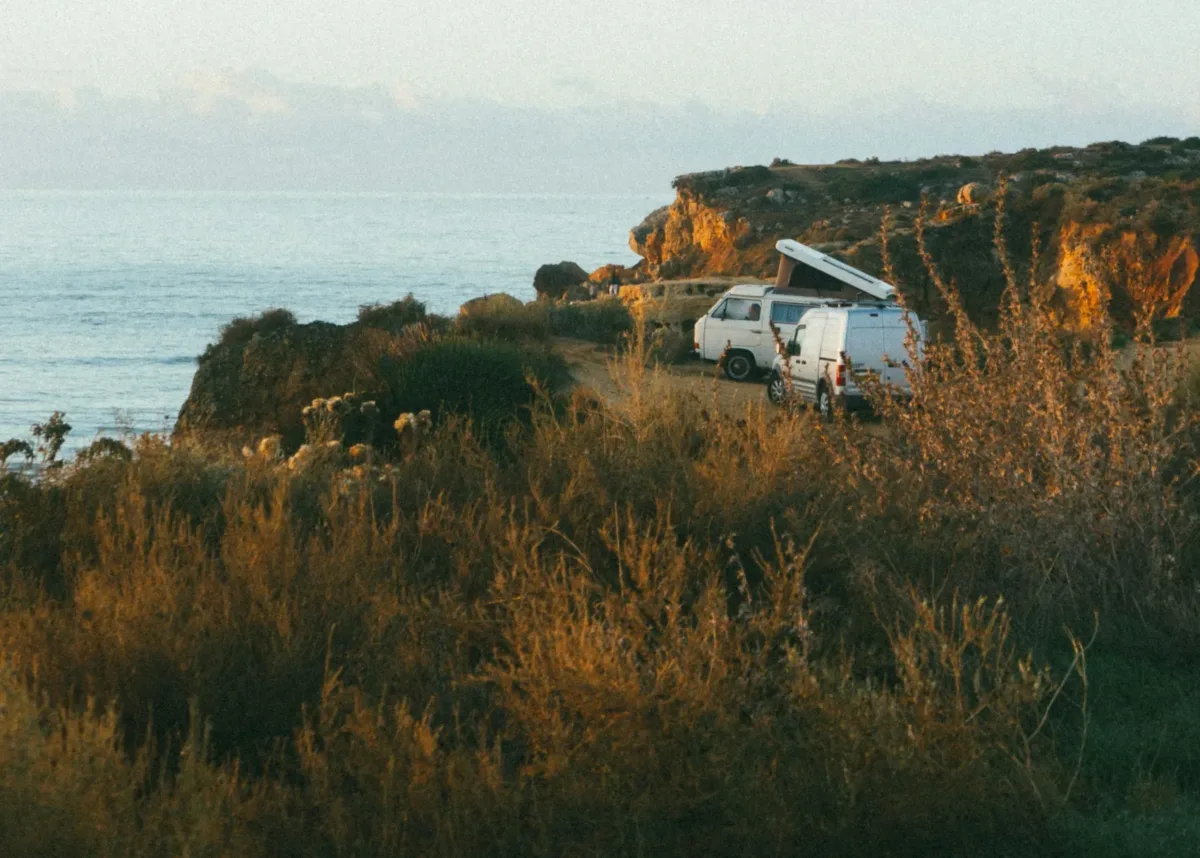Choosing the Right Vehicle and Gear
When planning an off-road camping trip, selecting the appropriate vehicle and gear is paramount to ensuring a safe and enjoyable adventure. A reliable off-road vehicle, such as a 4×4 truck or SUV, is essential for navigating rough terrains. These vehicles are specifically designed to handle challenging conditions, providing the necessary power and durability. Key features to look for include high ground clearance, which helps in maneuvering over obstacles, and all-terrain tires that offer superior traction on various surfaces.
Beyond the vehicle itself, equipping it with essential gear is crucial. Recovery equipment, such as winches and tow straps, can be lifesavers in situations where the vehicle gets stuck. These tools enable self-recovery or assistance from other vehicles. Navigation tools, including GPS devices and physical maps, are indispensable for finding your way in remote areas where cellular signals might be weak or nonexistent. It’s also wise to carry a compass as a backup.
Camping essentials should not be overlooked. A sturdy tent that can withstand the elements, along with sleeping bags appropriate for the expected weather conditions, is vital for a comfortable camping experience. Cooking supplies, such as portable stoves, cookware, and sufficient fuel, ensure you can prepare meals efficiently. Additionally, packing enough food and water for the duration of the trip, along with a first aid kit, is fundamental for safety and sustenance.
Before embarking on your off-road camping trip, conducting thorough vehicle maintenance checks and preparations is critical. Inspecting the vehicle’s fluids, brakes, and tires can prevent mechanical failures in remote locations. Ensuring that all lights and electrical systems are functioning properly enhances safety, especially when driving at night or in low-visibility conditions. Carrying spare parts, such as belts, hoses, and fuses, can also be beneficial in addressing minor issues that may arise during the journey.
Planning Your Route and Campsite
When embarking on an off-road camping trip, meticulous planning of your route and campsite selection is paramount. Begin by researching your destinations thoroughly. Understanding the terrain is crucial; different landscapes demand varying skill levels and equipment. Equally important is monitoring weather conditions, which can drastically alter the difficulty of your journey. Potential hazards, such as wildlife or challenging trails, should also be identified in advance.
To facilitate route planning, leverage both digital and physical maps. Digital tools like Google Earth or specialized route planning apps offer detailed insights and real-time updates. Forums dedicated to off-road adventures can provide invaluable first-hand experiences and recommendations from fellow enthusiasts. However, always carry physical maps as a backup, ensuring you’re never solely reliant on technology, which may fail in remote areas.
Finding legal and safe campsites is another critical aspect. Use resources like national park websites or apps dedicated to camping to identify designated areas. Ensure you adhere to Leave No Trace principles to minimize your environmental impact. This includes packing out all trash, avoiding disturbing wildlife, and staying on designated trails. Additionally, be aware of and obtain any necessary permits well in advance to avoid legal complications during your trip.
Having a backup plan is essential for off-road camping. Unpredictable factors such as severe weather, road closures, or campsite unavailability can disrupt your plans. Prepare alternate routes and potential campsites to ensure your trip can proceed smoothly despite unforeseen challenges. This flexibility can be the difference between a successful adventure and a problematic experience.
Effective planning of your route and campsite lays the foundation for a safe and enjoyable off-road camping trip. By thoroughly researching destinations, utilizing various planning tools, adhering to environmental principles, and preparing for contingencies, you can navigate the wilderness confidently and responsibly.
Safety Measures and Emergency Preparedness
Ensuring safety and being prepared for emergencies are paramount when embarking on off-road camping trips. One of the most crucial aspects is having a well-stocked first aid kit. This kit should include essentials such as bandages, antiseptics, pain relievers, and any personal medication. Moreover, knowing basic first aid is indispensable. Understanding how to treat common injuries like cuts, burns, and sprains, as well as recognizing symptoms of illnesses such as dehydration or heatstroke, can make a significant difference in remote settings.
Communication devices are another critical component of off-road camping safety. In areas where cell service is non-existent, satellite phones or two-way radios become invaluable. These devices ensure that you can communicate with the outside world in case of an emergency. It’s advisable to test these devices beforehand and ensure you know how to operate them effectively.
Vehicle recovery techniques are also essential knowledge for off-road adventurers. Mechanical breakdowns can occur, and knowing how to address them is vital. Familiarize yourself with basic vehicle repairs and recovery techniques such as tire changes, jump-starting a battery, and using a recovery strap or winch. Carrying a toolkit with the necessary equipment, including a spare tire, jack, and jumper cables, is highly recommended.
Informing someone about your travel plans and expected return time is a fundamental safety measure. Ensure a trusted person knows your itinerary, including your starting point, intended route, and camping location. This information can be crucial for search and rescue teams in case you encounter difficulties and fail to return as planned.
By prioritizing safety measures and emergency preparedness, you can significantly enhance the security and enjoyment of your off-road camping trips. Proper preparation ensures that you are equipped to handle unexpected situations and can confidently explore the great outdoors.
Sustainable and Responsible Off-Roading Practices
Engaging in off-road camping requires a commitment to sustainable and responsible practices to ensure the preservation of natural landscapes for future generations. One of the foundational principles of sustainable off-roading is to tread lightly. This means staying on designated trails and avoiding sensitive areas such as wetlands, meadows, and regions with fragile plant life. By adhering to established paths, off-roaders can minimize soil erosion and habitat disruption.
Proper waste disposal is another critical aspect of responsible off-roading. Campers should always pack out all trash, including biodegradable waste, and dispose of it in appropriate facilities. This practice helps maintain the cleanliness and natural beauty of the wilderness. Additionally, campers should be mindful of how they manage human waste, utilizing portable toilets or designated waste disposal areas when available.
Respecting wildlife is essential to sustainable off-roading. Off-road enthusiasts should observe animals from a distance and avoid disturbing their natural behaviors. This means not feeding wildlife, as human food can be harmful to animals and can lead to habituation, which disrupts their natural foraging habits and can pose safety risks to both animals and humans.
Minimizing campfire impacts is also crucial. Campers should use established fire rings where available and keep fires small. Using a camp stove for cooking is advisable to reduce the need for wood fires. When a campfire is necessary, ensure it is completely extinguished before leaving the site. This helps prevent wildfires and reduces the environmental footprint of your camping experience.
Participation in clean-up efforts and advocacy for responsible off-roading within the community can significantly amplify the positive impact of these practices. Joining local clean-up events or organizing your own helps to maintain the natural beauty and health of off-roading areas. By advocating for these principles within your community, you can foster a culture of respect and responsibility among fellow off-road enthusiasts.
Ultimately, sustainable off-roading practices offer long-term benefits for the environment, ensuring that off-road camping remains an enjoyable activity for future generations. By committing to these principles, campers can protect the landscapes they love and promote a healthier, more sustainable relationship with nature.






